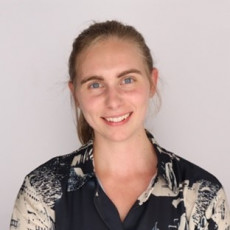I recently, grudgingly, started preparing for my job search, making lists of organizations, positions, and locations I might be interested in after graduation in December. In the past week we have begun interviewing other young people also on the job market but for reasons that sobered my perspective on the chore: they have left their established jobs and lives in Myanmar to escape conscription.
Nearing 10:30PM, Nan San and I join our final interview of the day on Facebook Messenger. We are greeted by a young man in glasses and a collared shirt, neatly buttoned all the way up. He smiles warmly from his room in Bangkok, happy to share his story despite the late hour.
“Min” tells us in a gentle voice, matching his appearance and profession, that up until 2 months ago, he was working as a dentist in Myanmar with plans to open his own clinic. He explains that he was happy to be doing important work in his home in Southern Shan State. After the coup he had figured that since he wasn’t blacklisted and was working at a private clinic, he could continue his career at home. Even after the conscription law was announced in February, he says he held out hope that he could stay because he knew that fleeing abroad would mean abandoning his career for the foreseeable future.
Although Min has completed his university degree and has a dental license, he doesn’t have his official diploma or transcript from his university. As a part of the Civil Disobedience Movement (CDM), medical doctors at the universities have suspended issuing certificates. Unfortunately, for people like Min, this means he has no proof of his qualifications beyond a high school diploma. He smiles at the absurdity of this documentation issue when so many others are missing visas and passports.
Min tells us that he stayed at his clinic as long as he could, but by April, nearly all the other eligible young men from his town had left. This guaranteed that he was on the draft list and would inevitably be conscripted; it was just a matter of time. With a heavy heart, Min decided that it was time to go.
He had a passport and planned to leave during the Water Festival in mid-April. Travel would be more common during the holiday, so even though flight prices were marked up, the premium would be worth the lessened security and scrutiny from officials.
Upon arrival in Thailand, he received a 2-week tourist visa. But Min tells us, with some exasperation, that he has since had to make multiple trips to Laos to extend the tourist visa and then to transfer to an education visa. These processes used to be easy, he says, but because of the flood of conscription refugees, Thailand has tightened the rules for Burmese citizens.
Even with the visas sorted, Min is now struggling to make ends meet. He tells us that he is currently living off of his dwindling savings and is looking for a job, despite not being allowed to work on an education visa.
As he describes his own challenging living situation, though, he brings up the young people living in the jungle and fighting in the war. He firmly states that, compared to them, his life seems easy. He jumps in to add that even though he stayed in Myanmar for a long time, he doesn’t agree with the coup, and now that he is in Thailand, he wants to find ways to support the resistance from here.
Min tells us that he thinks the situation will get worse before it gets better. But he still hopes to open his own clinic some day and unenthusiastically considers the question of retraining, telling us that this would mean starting from scratch for him, from a high school diploma. As a fellow 26-year-old, I would do all I could to avoid that too.
While Min’s story is far from the most dramatic we have heard, his fear and hopelessness at losing his career and starting over resonates with me and demonstrates how much Myanmar’s society is losing by sending its workforce to war against each other.
The name of the interviewee has been changed to preserve confidentiality.
Posted By Madeleine Schneider
Posted Jul 3rd, 2024



3 Comments
Iain Guest
July 3, 2024
Very sobering stuff. We’re seeing more articles in the Western press about conscription and it really does help to see this through the eyes of those who are directly affected – not just in Burma itself but once they find refuge in Thailand. Welcome any more interviews you can come up with, Maddy! Let’s develop some real expertise on this important issue….
Bobbi Fitzsimmons
July 7, 2024
How quickly a person’s plans can change – or, in this case, be changed for him due to circumstances. When I read testimonies such as Min’s, I ask myself if I would have the courage to do what he has been forced to do. He did, of course, have a choice – stay and be conscripted or leave and lose so much. Not really a choice at all. To face starting all those studies from scratch is daunting but I hope he will persevere and be able to return to his profession at some point. His story reminds me that one should never take things for granted, but also never give up hope.
Mary Ellen Cain
July 8, 2024
What a moving story! Min must be so frustrated knowing he can’t move forward with his career and will even have to start his education all over again. Yet he seems resigned to that and motivated, in the meantime, to somehow help his fellow countrymen in their struggles. I hope he can find a way to do that.